Discover Zion National Park in Utah through our comprehensive guide. Learn about its history, biodiversity, attractions, activities, weather, accommodations, and conservation efforts. Plan your visit today!
Table of Contents
Introduction to Zion National Park
Nestled in the heart of southwestern Utah, Zion National Park stands as a testament to nature’s grandeur. Renowned for its stunning red rock formations, towering cliffs, and scenic canyons, this national park attracts millions of visitors annually. Established in 1919, Zion is Utah’s first national park and offers a sanctuary for both adventure seekers and those looking to bask in its tranquil beauty. Whether you’re hiking the famous trails or simply taking in the vistas, Zion National Park promises an unforgettable experience.
History and Background
Zion National Park boasts a rich history that dates back thousands of years. The area was first inhabited by Native American tribes such as the Ancestral Puebloans and the Southern Paiutes. In the late 1700s, European settlers arrived, and by the early 1900s, the region’s unique beauty captured the attention of conservationists. President Woodrow Wilson designated the area as a national park in 1919, naming it Zion, a biblical term meaning “place of refuge” or “sanctuary.” Over the decades, the park has evolved, now encompassing over 146,000 acres of protected land.
Biodiversity
Zion National Park is a biodiversity hotspot, offering a wide range of ecosystems due to its varied elevations and unique geography. The park is home to over 1,000 plant species, including desert sagebrush, cottonwood trees, and rare wildflowers. Wildlife enthusiasts can spot a diverse array of animals such as mule deer, bighorn sheep, and the elusive mountain lion. Bird watchers will delight in observing over 290 bird species, including the majestic California condor. This rich biodiversity makes Zion a critical area for conservation and scientific study.
Famous Attractions
One of the park’s most famous attractions is the Zion Canyon, a 15-mile-long gorge carved by the Virgin River. Within the canyon, visitors can explore iconic sites like Angels Landing, a challenging hike that rewards climbers with breathtaking panoramic views. The Narrows, another popular spot, offers a unique hiking experience through the narrowest section of the canyon. For a more leisurely visit, the Emerald Pools Trail leads to stunning waterfalls and serene pools. Don’t miss the Checkerboard Mesa, an impressive sandstone formation that showcases the park’s geological wonders.
Activities
Zion National Park offers a plethora of activities for all types of adventurers. Hiking is undoubtedly the most popular activity, with trails ranging from easy walks to strenuous climbs. Rock climbing enthusiasts will find some of the best climbing routes in the world on Zion’s towering cliffs. For those who prefer water activities, the Virgin River provides opportunities for tubing and wading, especially in the summer months. Additionally, the park offers ranger-led programs, wildlife viewing, and photography opportunities to capture the stunning landscapes and wildlife.
Accommodations
Visitors to Zion National Park have a variety of accommodation options to choose from. Within the park, the Zion Lodge provides comfortable rooms and cabins with easy access to major trails. For those seeking a more rustic experience, there are three campgrounds: South Campground, Watchman Campground, and Lava Point Campground. Outside the park, the nearby towns of Springdale and Hurricane offer hotels, bed and breakfasts, and vacation rentals. Whether you prefer a cozy lodge or a campsite under the stars, there’s something for everyone.
Weather Conditions
Understanding the weather conditions in Zion National Park is crucial for planning your visit. The park experiences a semi-arid climate, with hot summers and mild winters. Summer temperatures can soar above 100°F (38°C), making early morning or late evening hikes preferable. Spring and fall are the most popular times to visit, with moderate temperatures and vibrant foliage. Winter brings cooler temperatures and occasional snowfall, especially at higher elevations, creating a serene and less crowded park experience. Always check the weather forecast before your trip and pack accordingly.
Visitor Information
Zion National Park is open year-round, but specific facilities and services may vary with the seasons. The Zion Canyon Visitor Center and the Human History Museum offer exhibits and information to help plan your visit. An entrance fee is required, with options for single-entry, weekly passes, or annual passes. The park is well-equipped with shuttle services, especially in the peak season, to reduce traffic and preserve the environment. It’s advisable to arrive early to secure parking and avoid the crowds.
Conservation Efforts
Preserving the natural beauty and biodiversity of Zion National Park is a top priority. The National Park Service works tirelessly on various conservation projects, including habitat restoration, invasive species management, and wildlife monitoring. Visitors are encouraged to practice Leave No Trace principles to minimize their impact on the environment. Additionally, several organizations collaborate with the park to support conservation efforts through volunteer programs and educational initiatives. These efforts ensure that Zion remains a pristine sanctuary for future generations.
Tips for Visiting Zion National Park
- Plan Ahead: Research and make reservations for accommodations and activities well in advance, especially during peak seasons.
- Pack Smart: Bring plenty of water, sun protection, and appropriate clothing for changing weather conditions.
- Use the Shuttle: Take advantage of the park’s shuttle system to navigate Zion Canyon efficiently and reduce your carbon footprint.
- Stay on Trails: To protect the delicate ecosystems and for your safety, always stay on designated trails.
- Respect Wildlife: Observe animals from a distance and never feed them.
For more information on planning your visit to Zion National Park, visit the official park website Click Here.
Zion National Park is a jewel of the American Southwest, offering breathtaking landscapes, rich history, and diverse wildlife. Whether you’re a seasoned hiker, a photography enthusiast, or someone seeking tranquility, Zion has something to offer. By planning ahead, respecting the park’s natural resources, and taking advantage of the available information and services, you can ensure a memorable and enjoyable visit. Embrace the adventure and discover why Zion National Park is a sanctuary like no other.
You may also like DISCOVERING NATURE’S MASTERPIECES: A GUIDE TO ARCHES NATIONAL PARK, UTAH

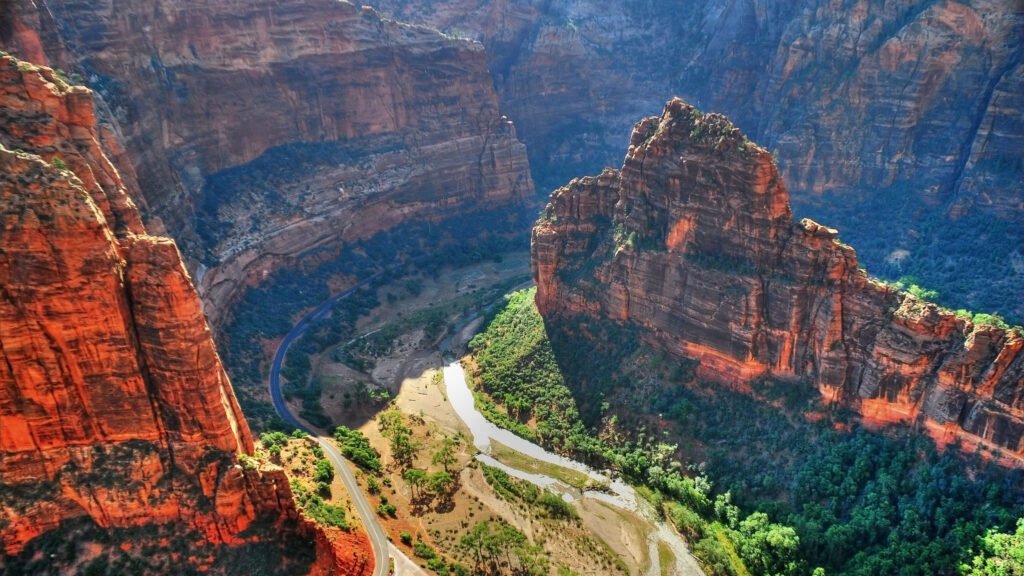

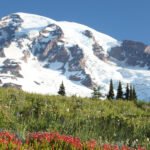
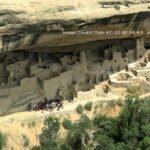

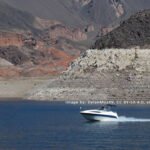
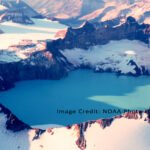
1 thought on “Exploring Zion National Park, Utah: A Comprehensive Guide to Nature’s Wonderland”